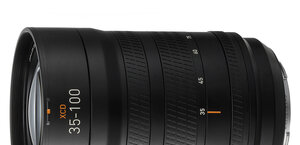Sigma C 30 mm f/1.4 DC DN
5. Chromatic and spherical aberration
Chromatic aberration
The Sigma doesn’t correct the longitudinal chromatic aberration in a perfect way. It would be difficult to call its level high but the colouring of the areas out of focus remains noticeable both by f/1.4 and by f/2.0 so it seems we might speak about medium values here. In some situations that effect will be visible in real life photos.
 |
Please Support UsIf you enjoy our reviews and articles, and you want us to continue our work please, support our website by donating through PayPal. The funds are going to be used for paying our editorial team, renting servers, and equipping our testing studio; only that way we will be able to continue providing you interesting content for free. |
- - - - - - - - - - - - - - - - - - - - - - - - - - - - - - - - - - - - - - - - - - - - - - - -
Now let’s check how the tested lens deals with the lateral chromatic aberration – an appropriate graph you can find below.

You have a chance to notice that aberration only at the maximum relative aperture where it reaches almost 0.09% so a borderline between low and medium level. After stopping down the aperture by about 1 EV or more you are able to reduce that aberration to 0.04% or so - these are practically imperceptible values.
| Olympus E-PL1, f/1.4 | Olympus E-PL1, f/2.8 |

|

|
Spherical aberration
In the first photo of this chapter you see that the depth of field moves slightly towards the larger distance after passing from f/1.4 to f/2.0. It is a slight effect but it might suggest that the correction of spherical aberration is not ideal. Images showing out of focus light points, presented by us below, seem to confirm that. The circle we got behind the focal point features a noticeable rim and the circle in front of the focus lacks that rim completely.
| Olympus E-M10, f/1.4, in front of | Olympus E-M10, f/1.4, behind |

|

|






